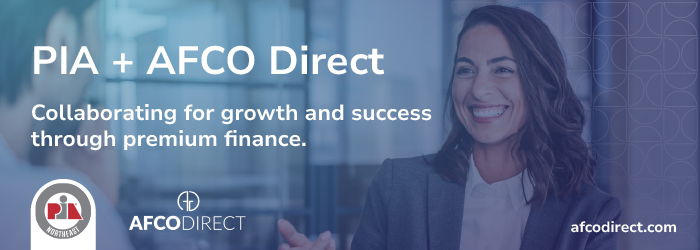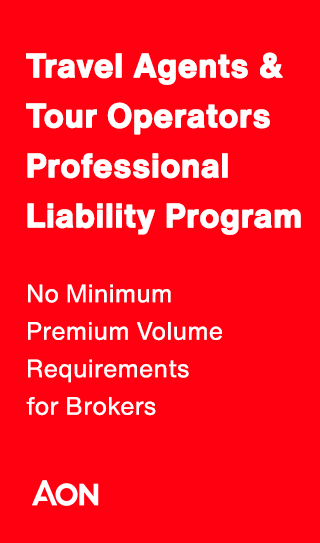News
Conn.: CID releases climate risk survey
The Connecticut Insurance Department announced on Monday that Connecticut—along with 15 other states—conducted the National Association of Insurance Commissioners’ Climate Risk Disclosure Survey, which allows insurers to report on climate-related risks and opportunities that provide the CID with additional information to evaluate insurance company risks and activities. Additionally, the survey enables insurers to evaluate the steps they’ve taken to engage policyholders over climate change. It asks questions that assess strategy and preparedness in several areas including emissions and carbon footprint, investment, mitigation, financial solvency and customer engagement. The CID sent the survey to Connecticut-domiciled insurers that collected more than $100 million in direct written premium during the 2020 reporting year.
Conn.: Earned income tax credit increases
Gov. Ned Lamont announced Tuesday that thousands of low-to-moderate income working individuals and families in Connecticut will see a significantly larger state tax refund as the Connecticut Earned Income Tax Credit is scheduled to increase from its most recent rate of 23% of the federal credit, to 30.5% this year. The rate increase was included as part of the Fiscal Year 2022-23 biennial state budget that Lamont signed into law earlier this year. It will result in an additional $40 million being delivered to the nearly 195,000 households that are eligible for the tax credit, for a total of $158 million.
N.J.: NAIC awards DOBI accreditation
The NAIC announced on Saturday that the NAIC Financial Regulations Standards and Accreditation Committee awarded the Department of Banking and Insurance—along with insurance departments in Arkansas, the District of Columbia, Indiana and Michigan—accreditation. Accredited insurance departments undergo comprehensive, independent review every five years to ensure they meet financial solvency oversight standards. The purpose of the accreditation program is for state insurance departments to meet baseline standards of solvency regulation, particularly with respect to regulation of multistate insurers. And, the program allows nondomestic states to rely on accredited, domestic regulators to fulfill baseline levels of effective financial regulatory oversight. Currently, all 50 U.S. states, the District of Columbia and the U.S. Virgin Islands are accredited by the NAIC.
N.J.: Acting governor signs landmark UEZ reform bill
Acting Gov. Sheila Oliver announced on Monday that she signed the Urban Enterprise Zone Reform Bill, which restores and revises the UEZ Program and appropriates $42.5 million in Zone Assistance Funds for Fiscal Year 2022, bringing the program back to full operation after having been without a funding source for more than 10 years. The UEZ Program Authority—which was established in 1983—is an affiliate agency of the Department of Community Affairs, and was created to foster an economic climate that revitalizes designated urban communities, and stimulates their growth by encouraging businesses to develop and create private-sector jobs through public and private investment. There are several highlights to the new legislation, including that it creates a new process for developing a zone development plan, which would have a five-year life, and municipalities with zoning plans that are five years old or older will be required to update their preliminary zone development plans. Oliver—who also is the commissioner of the Department of Community Affairs—will be the chair of the UEZ Authority.
N.J.: Safeco Insurance expands to New Jersey
Safeco Insurance announced last week that it has expanded to New Jersey, where Safeco auto and umbrella products now are available. This initial availability of auto and umbrella will pave the way for the future roll-out of the full suite of Safeco products, including home and renters coverage. The New Jersey launch comes amid a broader Northeast expansion, which most recently included an expansion to Rhode Island. Now, Safeco is available in 48 states—the Northeast states of which are led by Senior Vice President & Regional Field Executive Carl Canales. Safeco is a Liberty Mutual Insurance company, and its products are sold through a network of independent agents.
N.Y.: Superintendent Lacewell announces resignation
New York State Department of Financial Services Superintendent Linda A. Lacewell announced in a letter to DFS staff last Friday that she is resigning, effective Tuesday, Aug. 24, 2021. PIANY will follow DFS’s change of administration, and will notify members when a new superintendent of financial services is named, and whether this will impact the insurance industry or small businesses in the state.
N.Y.: Health care workers must be vaccinated
Gov. Andrew M. Cuomo announced Monday that all health care workers in New York state—including staff at hospitals and long-term care facilities such as nursing homes, adult care, and other congregate care settings—will be required to be vaccinated against COVID-19 by Monday, Sept. 27, 2021. Additionally, Cuomo announced that the New York State Department of Health has authorized a third COVID-19 vaccine dose for New Yorkers with compromised immune systems, following the latest recommendations from the Centers for Disease Control and Prevention. Eligible New Yorkers can receive their third dose 28 days after the completion of their two-dose vaccine series, effective immediately.
Advocacy
N.J.: Make sure you are registered to vote for the election
New Jersey’s general election is Tuesday, Nov. 2, 2021. Are you registered to vote? It’s important that you are eligible to cast a vote this year—not only are all 120 state legislators up for election, but so is Gov. Phil Murphy, and New Jersey PIAPAC wants to make sure that independent agents are represented in the state Capitol adequately. To find out how you can check your voting registration status, visit the election section of the NJPIAPAC website.
Technical
Are you up-to-date with FEMA’s new RR2.0?
The Federal Emergency Management Agency is rolling out its new flood rating methodology—Risk Rating 2.0—in two phases, starting Friday, Oct. 1, 2021. RR2.0 is an innovative theory, and PIA trusts that all independent agents and policyholders will have an easier time understanding their flood risks. As an independent agent, it’s important you understand the new rating methodology—for you and your insureds.
Educating insurance agents
Insuring truckers can be confusing—but you can learn more
If you have clients who employ truckers as part of their business operations, it’s important that you know how to insure trucking risks—including the underwriting guidelines and compliance issues that come with it. Many commercial auto insurance products can become errors-and-omissions claims quickly—because you and your clients should not be relying on commercial auto policies to insure truckers. As part of insuring this type of risk, it’s critical for you to know what to do if and when a claim or loss occurs, to understand how to use ISO’s Motor Carrier Form, and to reduce E&O exposure, as much as possible.
Register now
Sept. 14: CTYIP Golf Open
Sept. 16: NH Symposium




